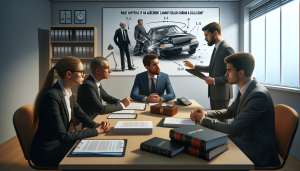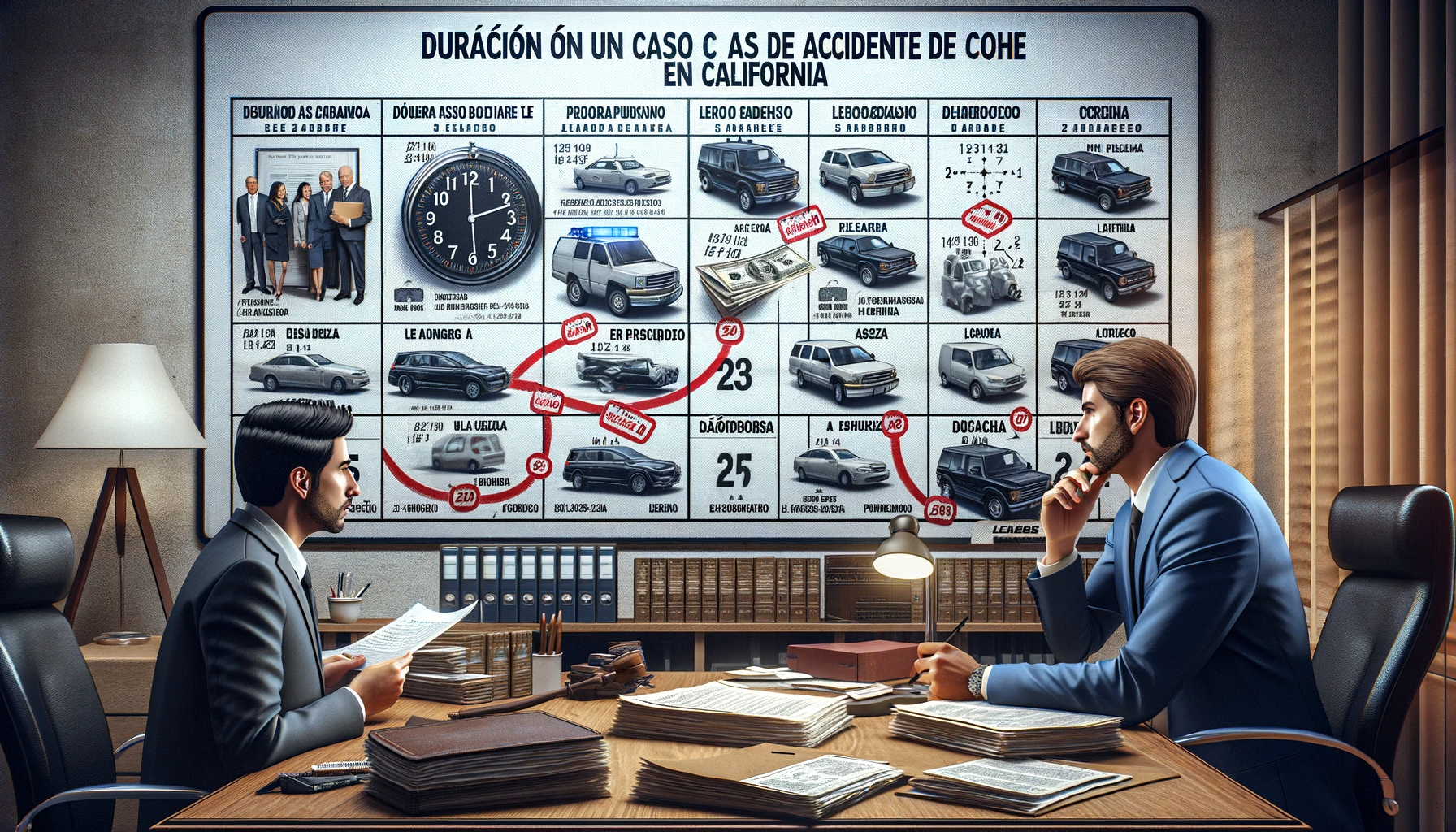Unlocking the Legal Maze: Navigating Minor Auto Accident Claims
Introduction
Navigating the legal and insurance complexities after a minor
auto accident can feel like a daunting task, even when the accident seems insignificant. While a fender bender might seem straightforward at first, there’s more to it than meets the eye. From dealing with insurance companies to protecting your rights, it’s crucial to understand the right steps to take to avoid costly mistakes. In this article, we’ll break down everything you need to know about handling minor
auto accident claims.
A minor auto accident typically refers to an incident where the damage is limited to vehicles and does not result in significant
injuries. Common examples include fender benders or low-speed collisions. Though these accidents may seem small, handling them incorrectly can lead to bigger headaches down the road.

Immediate Steps After a Minor Auto Accident
Ensure safety and check for injuries
Your first priority should always be safety. After the accident, make sure everyone is unharmed and move your vehicle to a safe location if possible. Even if the damage seems minor, never skip this critical step.
Contacting the authorities
In some cases, you may not need to involve the police, but it’s often a good idea to have an official report. This documentation can be crucial when dealing with insurance claims later.
Exchanging information with the other driver
Always exchange important details with the other party involved, including name, contact information, driver’s license number, and insurance information. This ensures both sides have everything needed for future claims.
Documenting the Scene
Taking photos
Visual evidence is your best friend after an accident. Take detailed photos of all vehicles involved, including any damage, the license plates, and the surrounding area.
Collecting witness statements
If there are any bystanders who witnessed the accident, politely ask for their contact information and a brief statement. Witnesses can play a key role in resolving disputes if any arise.
Filing a Police Report: Is it Necessary?
When to file a report
Even in minor accidents, it’s often a good idea to file a police report. Some states require it under certain conditions, such as when damages exceed a certain threshold. Having an official record can protect you from false claims.
The importance of having documentation
A police report acts as third-party documentation of the accident. Insurance companies and courts often give more weight to these reports when settling disputes.
Dealing with Insurance Companies
Reporting the accident to your insurer
It’s always a good idea to notify your insurance company, even if the accident was minor. They can guide you through the process of filing a claim, and failing to report it can lead to complications later.
Handling communication with the other party’s insurance
Be cautious when talking to the other driver’s insurance company. Stick to the facts and avoid making any statements that could be taken as admitting fault.
What if You Are at Fault?
Steps to take
If you believe you were at fault, don’t panic. Contact your insurance provider and explain the situation. They will handle the investigation and determine the best course of action.
Managing fault claims with insurance
In some cases, both drivers may share fault. Your insurance company will negotiate on your behalf to settle the claim based on the degree of fault assigned to each party.
Common Mistakes to Avoid After a Minor Accident
Not reporting the accident
Failing to report the accident to your insurance or the authorities can cause problems down the line. Always document the event, even if you believe it’s minor.
Admitting fault at the scene
Even if you feel responsible for the accident, avoid admitting fault to the other party. Let the insurance companies and police handle the investigation.
Should You Hire an Attorney for a Minor Accident?
When legal representation is necessary
For most minor accidents, you can handle the claim without legal help. However, if there are disputes over fault,
injury claims, or insurance payouts, it’s worth consulting an attorney.

How a lawyer can assist with claims
Attorneys can help you navigate the complexities of the legal system and insurance negotiations. They can also provide guidance if the other driver sues or if you suspect a fraudulent claim.
Understanding Your Rights as a Driver
Legal obligations during a claim
As a driver, you have certain legal responsibilities during the claim process, including cooperating with your insurance company and providing accurate information.
Protecting yourself from fraudulent claims
Unfortunately, not everyone is honest. Some drivers may exaggerate damages or
injuries. Having thorough documentation and legal guidance can protect you from falling victim to fraud.
Medical Considerations After a Minor Accident
Minor injuries that can develop later
Injuries such as whiplash or soft tissue damage may not be immediately noticeable. If you experience pain in the days following the accident, seek medical attention right away.
Importance of seeing a doctor
Even if you feel fine, getting checked out by a doctor is a good idea. Some
injuries take time to manifest, and having a medical record can support any future
injury claims.
Repairing Vehicle Damage
Getting estimates
After an accident, get multiple repair estimates to ensure you aren’t overcharged. Compare prices from different shops to find the best deal.
Choosing a repair shop
Your insurance company may recommend certain shops, but the final decision is yours. Choose a reputable shop with a history of quality work.
Dealing with Property Damage Claims
Steps to file for property damage
File a claim with your insurance company or the other driver’s insurer. Provide all necessary documentation, including photos, repair estimates, and any police reports.
Negotiating with insurance
If the insurance company’s offer seems too low, don’t be afraid to negotiate. Gather evidence and present a clear argument for why you believe your claim is worth more.
Reaching a fair settlement
Most minor accidents are settled quickly through insurance negotiations. Be patient and provide all necessary documentation to speed up the process.
Should you accept the first offer?
Insurance companies often offer a low initial settlement. Don’t feel pressured to accept it right away—consider your options and negotiate for a fair payout.
Conclusion
Navigating a minor
auto accident claim doesn’t have to be overwhelming. By following the correct steps, from gathering evidence to negotiating with insurance companies, you can resolve the situation smoothly. Remember, even small accidents require attention to detail and proper documentation. When in doubt, consult an attorney to ensure your rights are protected.
Look for an attorney who has the right legal resources for your legal needs.
Contact us here on the
Warmuth Law website or through our hotline 888-517-9888.
Frequently Asked Questions (FAQ's)
- Do I need a lawyer for a minor auto accident?
In most cases, no, but if disputes arise or you feel overwhelmed, it can be helpful to consult one.
- How long do I have to file a claim after an accident?
The timeframe varies by state, but it’s best to report it to your insurance company as soon as possible.
- Will my insurance rates go up after a minor accident?
It depends on your insurer’s policies and whether you were at fault. Check with your provider for details.
- What if the other driver doesn’t have insurance?
If the other driver is uninsured, your uninsured motorist coverage can help cover damages.
- Should I still see a doctor if I feel fine after the accident?
Yes, some injuries may not appear until days later, so it’s wise to get a medical evaluation.













